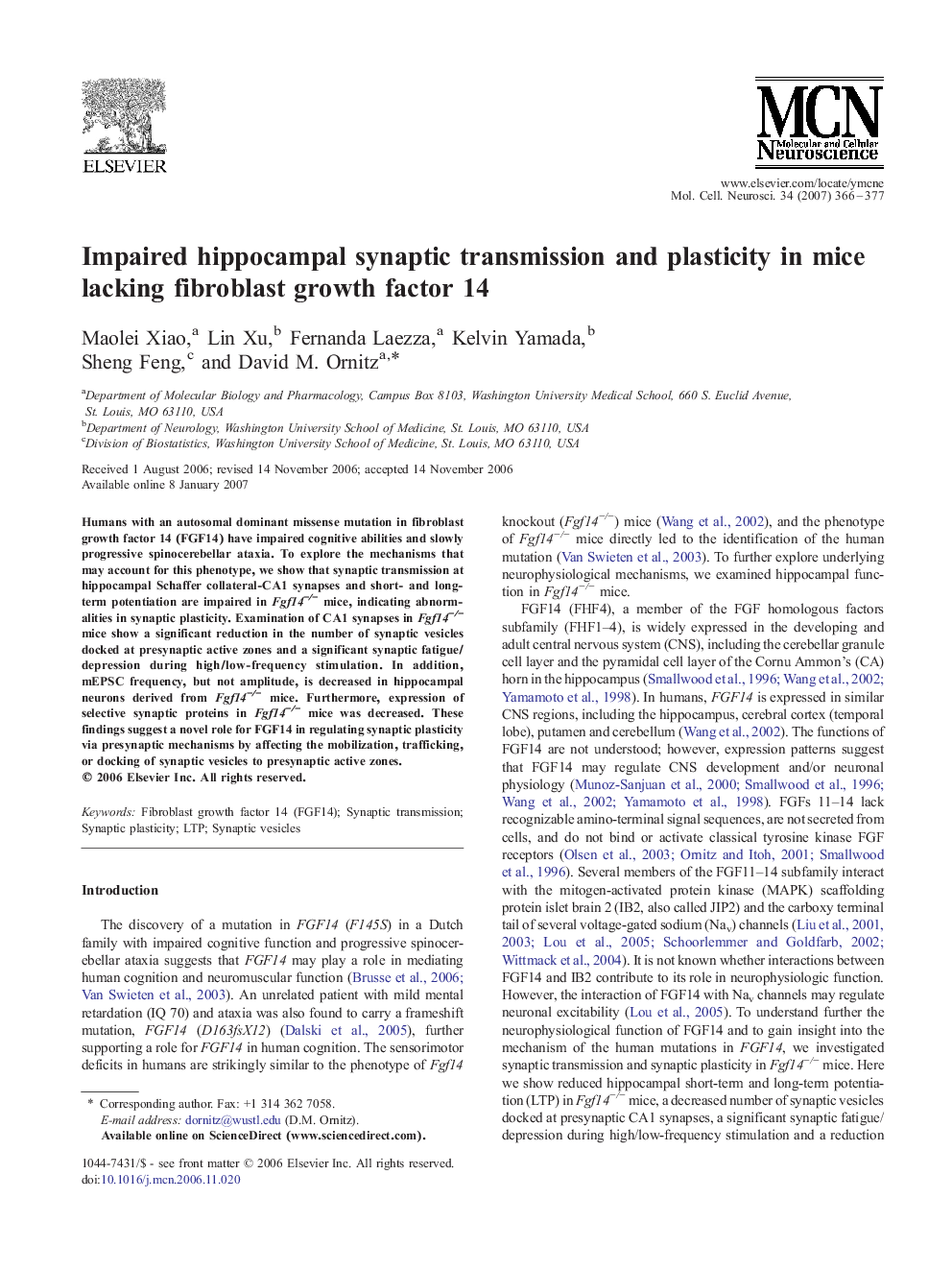| Article ID | Journal | Published Year | Pages | File Type |
|---|---|---|---|---|
| 2199287 | Molecular and Cellular Neuroscience | 2007 | 12 Pages |
Humans with an autosomal dominant missense mutation in fibroblast growth factor 14 (FGF14) have impaired cognitive abilities and slowly progressive spinocerebellar ataxia. To explore the mechanisms that may account for this phenotype, we show that synaptic transmission at hippocampal Schaffer collateral-CA1 synapses and short- and long-term potentiation are impaired in Fgf14−/− mice, indicating abnormalities in synaptic plasticity. Examination of CA1 synapses in Fgf14−/− mice show a significant reduction in the number of synaptic vesicles docked at presynaptic active zones and a significant synaptic fatigue/depression during high/low-frequency stimulation. In addition, mEPSC frequency, but not amplitude, is decreased in hippocampal neurons derived from Fgf14−/− mice. Furthermore, expression of selective synaptic proteins in Fgf14−/− mice was decreased. These findings suggest a novel role for FGF14 in regulating synaptic plasticity via presynaptic mechanisms by affecting the mobilization, trafficking, or docking of synaptic vesicles to presynaptic active zones.
